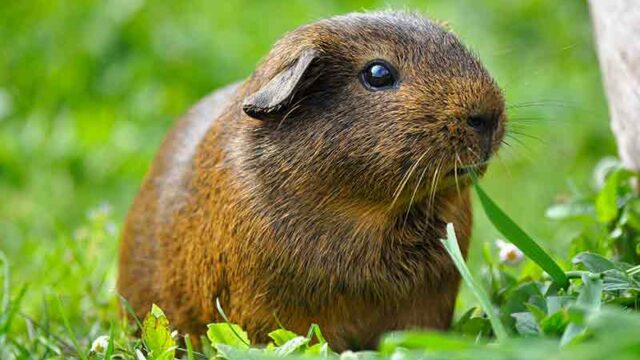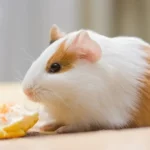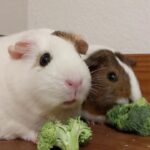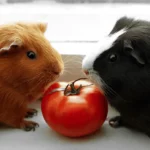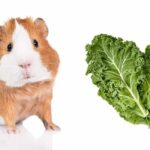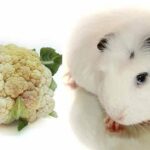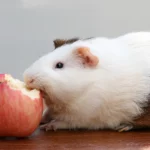Yes, guinea pigs should eat grass, both fresh and dried. It helps their digestive systems function properly. Therefore, grasses are safe.
Your guinea pig’s digestive tract is fragile and designed to digest food rich in fiber.
When guinea pigs eat grass, they get sufficient fiber, which is great as fiber aids in your pet’s digestion.
Is Grass Safe For Guinea Pigs?
Grass is one of the major dietary elements for guinea pigs. Wild guinea pigs graze on grass and other leafy vegetables.
For the domesticated ones, grass can be fed provided it is clean and fresh.
The grass is safe to feed guinea pigs with grass as they are herbivores. However, only grass is not sufficient for them.
Along with it, a constant supply of essential nutrients should be provided to them, which can be in the form of supplements or other types of food and vegetables.
Benefits Of Grass For Guinea Pigs
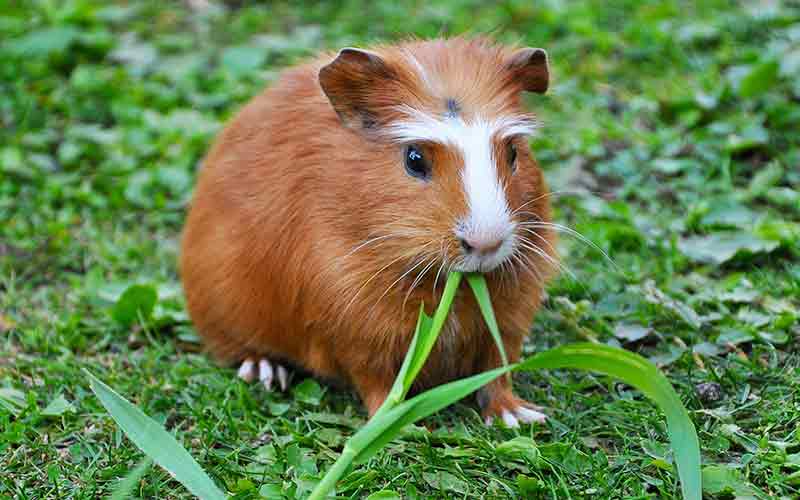
- Helps with the elimination of free radicals. Since the grass is rich in several antioxidants, it helps get rid of free radicals which would, in turn, lead to diseases and infection.
- Aids in the reduction of cholesterol levels in the body. Cholesterol is a harmful waxy substance that is found in the body of humans and animals. Cavies have the potential to suffer from the effects of this substance, and that is why they need protection from it.
- Helps in blood sugar control. Grasses generally lack high sugar levels. In some cases, they have minimal to zero sugar in them. When the blood sugar level in guinea pigs rises, it can lead to death.
Apart from death, some of the other effects of high blood sugar levels include thirst, headache, frequent bowel movements, and tiredness. These are things that you can quickly notice on your cavy which can prompt you to feed it grass since grass helps in this regulation. - Prevention of inflammation. Research has shown the benefits of grasses when it comes to preventing inflammation. This is a regular occurrence by the body to guard against infections and injury.
- Grass can help your cavy lose some weight. First of all, it doesn’t have high sugar levels like some of the other foods do. The grasses have fiber that increases satiety thus limiting the intake of excess food by the pet.
When the cavy eats fewer foods, it equally tends to reduce the levels of calories that get into the body. This is one way to reduce weight. - Helps with fighting infections. Grass has been proven to help fight diseases and viruses that are somewhat hard for antibiotics to fight against. This makes it easy for the cavy to stay healthy.
- Alleviates stomach pains or aches. It also helps to deal with problems such as diarrhea.
What Type Of Fresh Grass Guinea Pigs Love?
Guinea pigs love all types of grass, although it’s not recommended to let them eat Lucerne (alfalfa) or Clover, not even dried alfalfa and clover hay, as these are too high in protein and calcium, which is not safe for guinea pigs.
Actually, don’t feed guinea pigs any herbs, grasses, or vegetables that are high in protein and calcium as these can cause health problems in your pets.
Is Fresh Grass a Sufficient Meal for Guinea Pigs?
No, fresh grass is not a sufficient meal for guinea pigs because it is not a good source of vitamin C.
Grass for guinea pigs is not sufficient to fulfill your pet’s daily needs for vitamin C.
These small animals need lots of vitamin C, but the content of vitamin C in fresh grasses, grass hays, and legume hays is very low. The lack of vitamin C is detrimental for guinea pigs.
Guinea pigs can eat an unlimited amount of fresh grasses and hay, and they should have it readily available every day.
